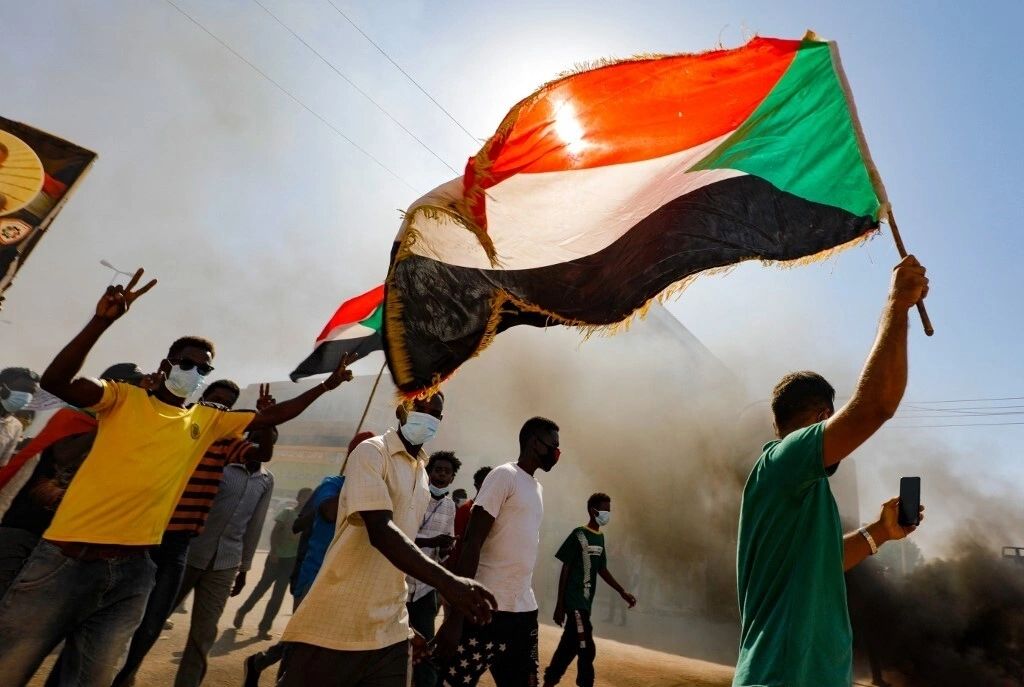
It is the sixth military coup since Sudan’s independence in 1956, and it was prompted by a massive popular uprising that erupted on December 15, 2018 and succeeded in toppling the one-man-rule of former President Omar Albashir, who also seized power by force, and kept his grip tight on the country for 30 years.
The military coup led by General Abdel-Fattah Al-Burhan has carried slogans and shining promises to the revolutionists, which was manifested in the Military Council’s announcement of its intention to share power with the civil wing of the revolution, and its respect for the aspirations of professional syndicates and civilian resistance committees that led the peaceful demonstrations.
However, Al-Burhan, by his power grip through the Military Council first, and then through the joint Sovereign Council, seems to have misread the lessons of the Sudanese history.
History indicates that the rebellious “predecessor”, Field marshal, Abdel Rahman Swar Aldhahab, who held the presidency of the Transitional Military Council after the 1985 coup, had a more humble ambition compared to his counterpart Al-Burhan!
Swar Aldahab was smart enough to hand over the power a yearafter he took over, and then retired from political life as soon as the country reached an acceptable public election at that time.
As for “the successor” Al-Burhan, he suddenly turned his back to veteran Prime Minister, Abdullah Hamdok, an international expert in public sector reform, good governance and management of democratic systems, and then arrested him without warning, suspending the work of his government.
However, Al-Burhan was forced -under massive internal popular pressure, and an international one led by the United States- to release him and negotiate a new deal to head the government.
With Hamdok’s return as PM, the street began to show doubts about this military-civilian combination that indicated a clear desire on the part of the Military to rule alone, and that Hamdok’s return was nothing but a legitimation of that desire. This is not to mention the failure of the Sovereign Council to achieve the minimum goals of the political revolution, to improve the standard of living, or as well as public security and stability.
On the second anniversary of the revolution, and with the killing of four peaceful demonstrators in front of the Republican Palace Square on December 30th , with live bullets fired by the security forces, there is no longer any doubt that the Military Council is veering the country into fierce confrontations that may easily escalate into endless civil wars.
In Washington, immediately after the fall of the first victim in the recent peaceful demonstrations of December, US Secretary of State Anthony Blinken twitted on his official account: “Deeply troubled by reports that Sudanese security forces used lethal force against protesters, blacked out the internet, and attempted to shutdown media outlets. The U.S. stands with the people of Sudan, as they demand freedom, peace, and justice.”
Undoubtedly, the crisis in Sudan is more than a crisis of government performance or a disagreement over how the revolution is represented within the administration. It is rather a crisis within the ranks of the military themselves– It is their repeated attempts to monopolize power and decision-making, and to rule the country by proxy.
Al-Burhan’s attitude may lead to a dangerous uprising, but this time will be an internal one within the military’s inner circle itself. However, the movement will not be targeting Mr.Hamdokas much as itis aims to curb the appetite of the comrades-in-arms, headed by the first man, Al-Burhan, along with the second closest one, Hamdan Dagalo, nicknamed Hemeti, and who had led militias accused of war crimes in 2003 in Darfur.
The second option would be to announce early elections, during which the military will remain completely outside and contribute to protecting its course, enabling citizens to reach the polling stations in peace and to cast their vote freely.
There is no third option for Al-Burhan/ Hemedti so ever. Both have already exceeded the “red lines”!
However, this could be a wake-up call before risking the possibility of the country’s return to the State Sponsors Terrorism list, with all its consequences, most importantly the loss of much needed international economic assistance.
